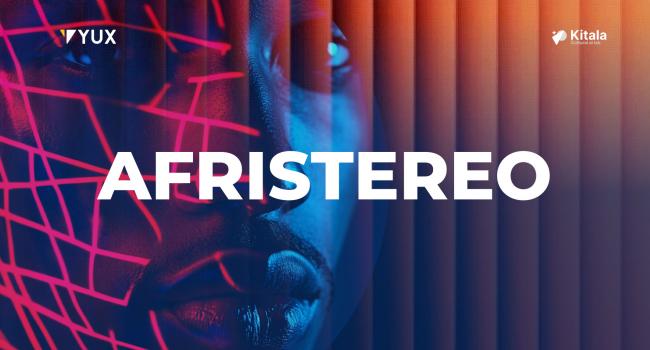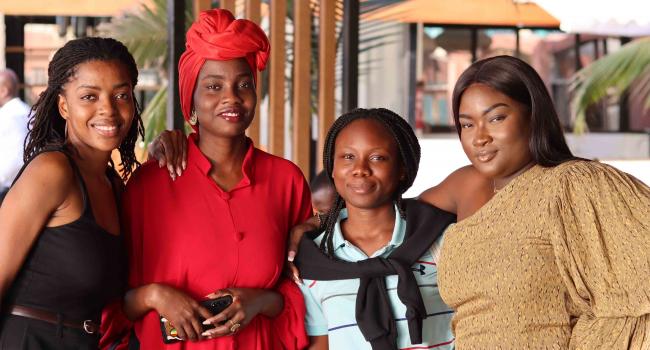This case study by offers key insights for companies attempting to grow markets and communities in the Global South. It describes our research approach we had conducted in four African countries for the Wikimedia Foundation, including the Foundation's motivation for focusing on the global South, the research teams and methodology, the impact of the work and how differences in position sparked debate. Key insights include the relevance of developing non-digital solutions, understanding the specific ways that African participants leverage their Wikimedia work, and addressing the uneven perception of Wikipedia as a neutral source of information. Constructive debate arose because the foundation team had little knowledge of Africa, which obliged the African researchers to be comparative-cultural experts and ethical champions. The case study also explores friction around the fact that, although emic perspectives from Africa had been sought by the foundation, ultimately the more complex solutions the research recommended were not prioritized. However, other recommendations were implemented: the research led Wikimedia Foundation to launch a community-support group dedicated to African Wikipedia volunteers and contributed to leveling up how the foundation supports its volunteer community globally.
STARTING POSITIONS: BACKGROUND AND MOTIVATION
The Strategic Importance of Global South Wikimedia Volunteers
In July 2021, YUX was contacted by WMF to carry out a vast exploratory research project across four African countries. The topic of exploration was “volunteering,” and more specifically, uncovering the best practices of successful African volunteer communities. What were volunteers’ motivations and greatest challenges? What would it take to encourage more people to volunteer to organize events for the Foundation? For context, WMF relies on volunteers, sometimes referred to as “Wikimedians,” to organize events called “edit-a-thons,” where people gather to edit Wikipedia articles on a predetermined topic together.1
These edit-a-thons are a great entry point into the Wikimedia community of editors, since they provide training on how to use the Wikipedia platform, as well as a sense of community and group motivation. A lot of articles are started, written and improved during these events, and Wikimedia event organizers are crucial to the encyclopedia’s continued growth and improvement. Building an intentional approach to engaging African and Global South volunteers is at the heart of WMF’s current strategy, because the Foundation is aiming for greater representation in its wikis by 2030. They want to encourage the editing of articles about the Global South, ideally by people from the Global South.
The main challenge WMF faced was that the support they were giving was not as effective in Africa and other Global South geographies as it had been traditionally with European and Western Wikimedians. Because the needs of those volunteers (a typical Wikipedia editor is most often a retired Westerner) were already well documented internally, the research project aimed at exploring how to better adapt the support to African volunteers by learning what was being done locally in existing communities.
The Strategic Importance of a Global Project For YUX
This project was the first of its scope for YUX. At the time the agency was just five years old. Most of the staff was young and African, many were self-taught or had been trained at YUX, and the ratio of juniors to seniors was quite high. Though they had already worked on projects for international organizations and prestigious companies, it had always been on products or services intended for the African continent. This project would be the first global service the team would work on, and as such, it was an endorsement of the quality of what they had achieved. It would have been an exciting challenge for any researcher, but for the YUX team members it meant even more.
Because Wikipedia is a household name, they could tell their family members, and especially their parents, about it. African parents hold high expectations for their children and can have a significant influence on their career decisions, often pointing them in the direction of more traditional prestigious careers, such as medicine, engineering, law, etc. Even if our staff members were trained in sociology or anthropology, joining a “design” agency is a risky move, with many parents doubting their children’s decision. It is important for “YUXies” to “prove” that they made the right choice. Parents have that influence in Africa, even on their adult or young-adult children, and as an agency, YUX has to acknowledge this.
The WMF project was also highly motivating for another reason. The ultimate goal of the project, to encourage more African content written by Africans, spoke directly to the agency’s values. YUX is a pan-African agency committed to using research and design to build the future of the continent and to promoting African design and ownership of content and services. The WMF project was precisely the type of project the agency was founded for.
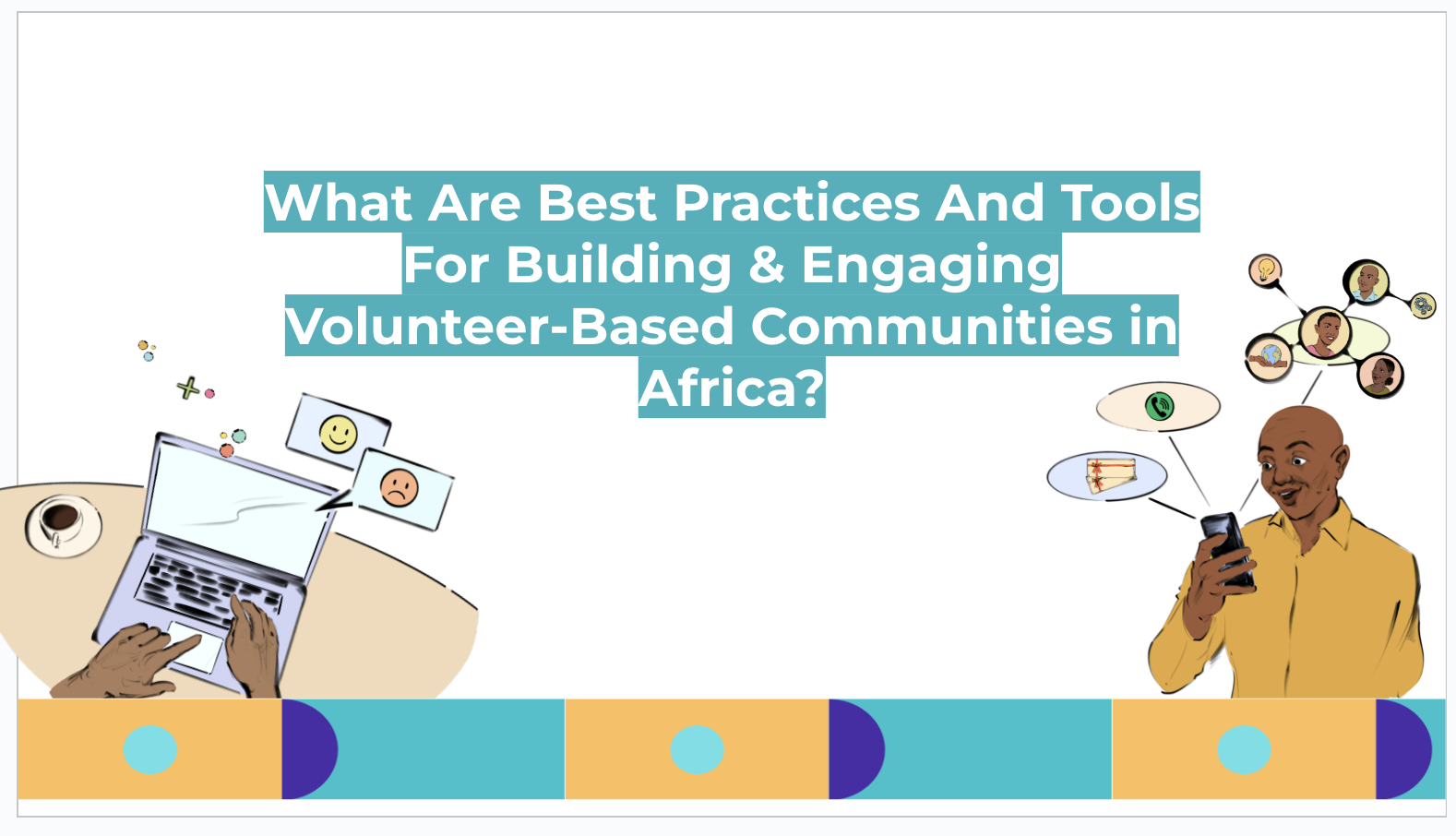
The Wikimedia Team’s Starting Context
Right from the first meetings, the WMF team was extremely easy to work with and eager to listen. WMF works regularly with their communities and submits projects for their use and evaluation. The needs and challenges in community-building and in using WMF platforms were also well documented internally, but WMF recognized that they did not know the African continent well. Some strong wiki communities, such as those in Ghana and Nigeria, were better known to them, but most of the continent was riddled with behaviors, outputs, requests and challenges they were unfamiliar with and had a hard time building a strategy for.
A study had recently been completed on the existing volunteer-community organizers. It led the Wikimedia Campaigns team to the realization that they didn’t know how other organizations were doing things, particularly in the geographies and languages where their own volunteers were struggling.
The design research manager at the time, Ana Chang, pushed for additional research, and because
the foundation’s research team was not sufficiently staffed, she pushed for a local partner.
On WMF’s side at the time, there was the senior product manager (the developers and the team designer were in the process of being hired), the design-research manager, a program director, an open-knowledge strategist and the director of community programs. The differences with the YUX team were numerous: age, education, seniority and culture. The WMF staff had attended college, mostly in the US, and although they knew about Global South challenges through their work at the Foundation, their lived experiences did not tend to reflect African realities.
The Black Lives Matter movement had had a strong impact on the Foundation, however, and they chose to seek a partner that would challenge their assumptions. A new DEI framework was being developed and implemented, and the partnership was not only intentional, it was respected. In what felt serendipitous, a big change was happening at WMF at the time: Maryana Iskander was starting as the new CEO. She had worked for 10 years at a South African NGO that relied partly on volunteers.
Her knowledge of the continent and her non-technical background signaled a change in strategy.
The research was coming at the right time, when a wind of change was blowing, and there were ears ready to listen.
THE RESEARCH APPROACH
The project had four major phases, with the goal of achieving a comprehensive, on-the-ground, in-situ understanding of community dynamics.
1. Desk Research
2. Exploration
3. Definition and Ideation
4. Prototyping & Testing
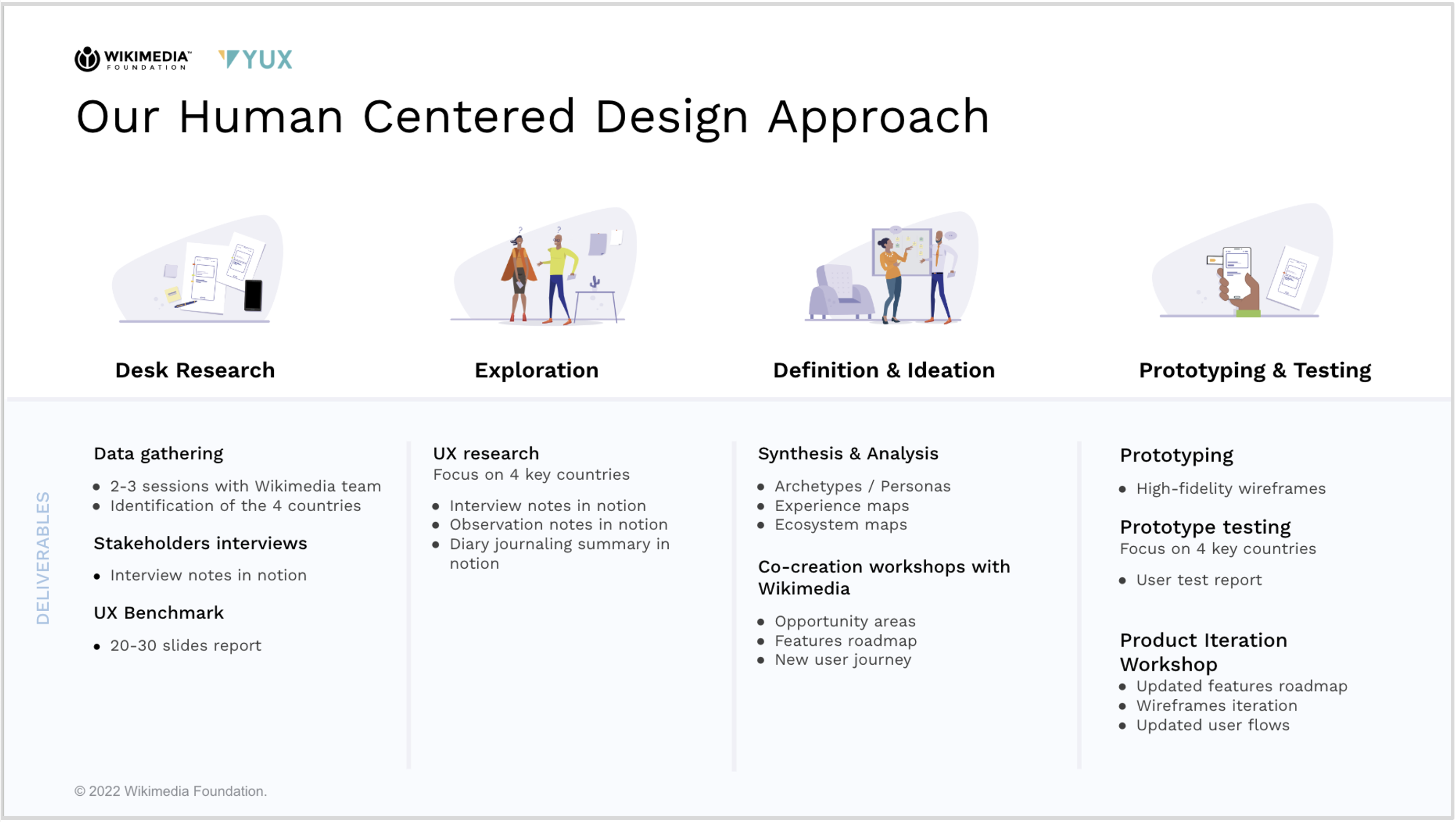
Figure 1: Summary of the project methodology’s four steps.
Desk Research
After the project kickoff, there was a steep learning curve for the agency team to understand the complex world of WMF, and six stakeholder interviews were carried out with people working for the Foundation. Rather than being involved with the technical aspect of the project, most of them were involved with event and campaign organizers, who were in touch with the volunteer groups and were advocating for a shift in approach. Except for one person based in South America, they all lived in the USA, had been at the foundation for several years and were committed to the values of open-source, open knowledge and open access.
After the interviews, which yielded a lot of insight on what the WMF team expected, already knew and how they wished to leverage the learnings, the next step of the project was to profile the research communities. WMF had not determined exactly which countries they wanted to do research in, so the YUX team built a set of criteria based on the stakeholder interviews. The criteria included practical aspects, such as whether or not there was an active Wikimedia community in the country, and if the YUX team had a presence there. Others were more qualitative: how much did WMF already know about the country? Preference was given to countries they had little knowledge about. Finally, languages spoken, geographical distribution and political contexts were also taken into account. The goal was a balance between French-speaking and English-speaking countries, country sizes and cultural and political dynamics.
The selection process yielded two English-speaking countries: Uganda and Rwanda, and two French-speaking ones: Senegal and the Democratic Republic of Congo (DRC). Uganda and Rwanda, two East African countries, stood out for different reasons. Rwanda has a very centralized form of government, and Uganda had intense political activism at the time. WMF wanted to explore the effects of those political contexts on activism and volunteering. In the DRC, the project team was curious to explore how country size affects community organizing. Finally, Senegal is a French-speaking West African country, and YUX has its headquarters there, which simplified the research effort. Priority was given to diversity, in order to explore how different contexts impact volunteer-event organizing.
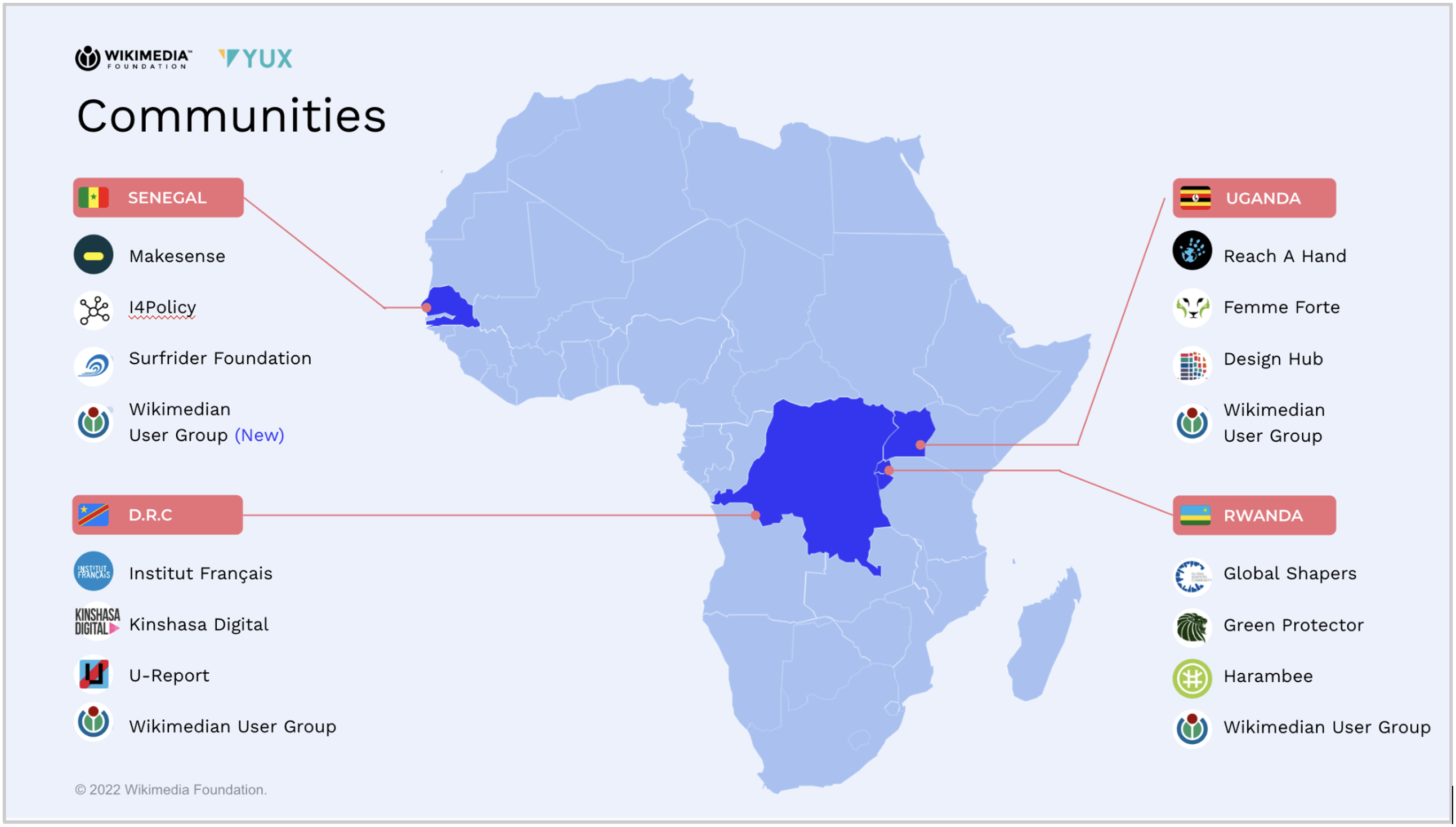
Figure 2: A map of Africa showing the four countries of research.
After identifying the countries, the specific communities had to be identified. There were three criteria for selection.2
They are good at community organizing (size of the community, quality of communication & events, impact)
They are activist (they aim for some form of social impact)
Participating may be risky for members (political opposition, personal beliefs, sexual identity or other community identifiers put the participants at some form of risk)
Exploration
The research was organized by country and type of community, with a combination of qualitative research techniques. For all non-Wikimedia communities we conducted two semi-guided interviews (organizers and participants), one immersion at an event and a diary study of the process of organizing an event from the perspective of an organizer. In each Wikimedia community we also conducted two semi-guided interviews and one immersion at an event, but we did not run a diary study, because the focus was on learning from other communities. In total, that added up to forty-four in-depth semi-guided interviews, sixteen immersions and twelve diary studies.
It is interesting to break down the researchers’ profiles, since they impacted the relationships built with participants. As Johnson, Roubert and Semler (2022) point out, “Local researchers provide a critical corrective: they can return to a participant and their daily lives in real time to go deeper into certain stories.” YUX was fully committed to leveraging the benefits of local resources, and made a point of balancing the need for local researchers and research expertise.
Nine researchers were involved with the project: a mix of Senegalese, Beninese, Congolese, Rwandan, Nigerian and Ugandan. The project manager interfacing primarily with WMF was a Franco-American living in Senegal. Most of the team was working directly for the agency, but some were consultants that had been trained at YUX Academy. 3
The semi-guided in person interviews lasted one to two hours in general, and were held at a location chosen by the interviewee. Stricter Covid restrictions forced some interviews to be remote from time to time. Immersions in the community events were a logistical challenge to coincide with the research calendar, because not every community was necessarily scheduling an event within the project timeline. The research timeline had to be extended (from four to six months), but the WMF team was understanding. This also impacted the diary studies, because they had to coincide with an event. The preferred method for them was a WhatsApp group, where a few days before and after the event, the country research lead would send prompts to the event organizer with questions surrounding the event organization and follow up. The goal of these “digital diaries” was to compare them to the other qualitative data collected and build experience maps.
The events the research team attended included training, activist events, member meetings, and annual community meetups. Event duration varied from a few hours to three days. A researcher would be present and observe the rituals, processes and tools each community put into place to create a safe environment for dynamic participation and involvement. The researchers used an observation grid to jot down the event agenda, key moments, level of engagement and number of participants. The reality of this project, though, was that the local researchers had to build relationships with the communities even before the research started. This was only possible because of the networks in which the YUX team were already involved or knowledgeable about because they lived in those countries. The value of local connections is being acknowledged more and more, as Johnson et al. (2022) also emphasize:
Working with local researchers […] allowed us to enter long-established social networks and more rapidly learn about the logics and histories of these networks—knowledge that can often only be gleaned through longer fieldwork engagements.
In our project, this translated into being able to keep in touch with organizers who often had last-minute changes to their events. In Rwanda, for example, one event was pushed back twice. Once because the venue canceled the meeting (but kept the down payment!) and the second time because there wasn’t enough commitment from the organizers, understandably disappointed by the loss of their initial investment.
Not only would those changes have been a nightmare for a non-local researcher, who might not have been able to change their travel plans, but the organizers were initially reluctant to share their misfortune with us. Because our Rwandan team members could meet up with the organizers multiple times, the story eventually came out.
Ideation, Prototyping and Testing
After the research, all the findings were presented as inspiration for a series of workshops with the Campaigns team, to prioritize features the developers and designers would work on in the coming months. This was the Campaigns team’s priority, and in line with their focus on developing digital products. However, the importance of non-digital solutions uncovered during the research also led to a series of workshops focused on rethinking the global experience for volunteer organizers, especially the onboarding process.
In the final phase of the project, YUX designers used the insights about the digital features garnered from the research to design high-fidelity prototypes of a digital Event Center that volunteers could access. The prototypes were then shown (this time remotely) to volunteers to gather feedback over the course of twelve test sessions. A User Journey for an intentional onboarding of new volunteers was also shared for feedback.
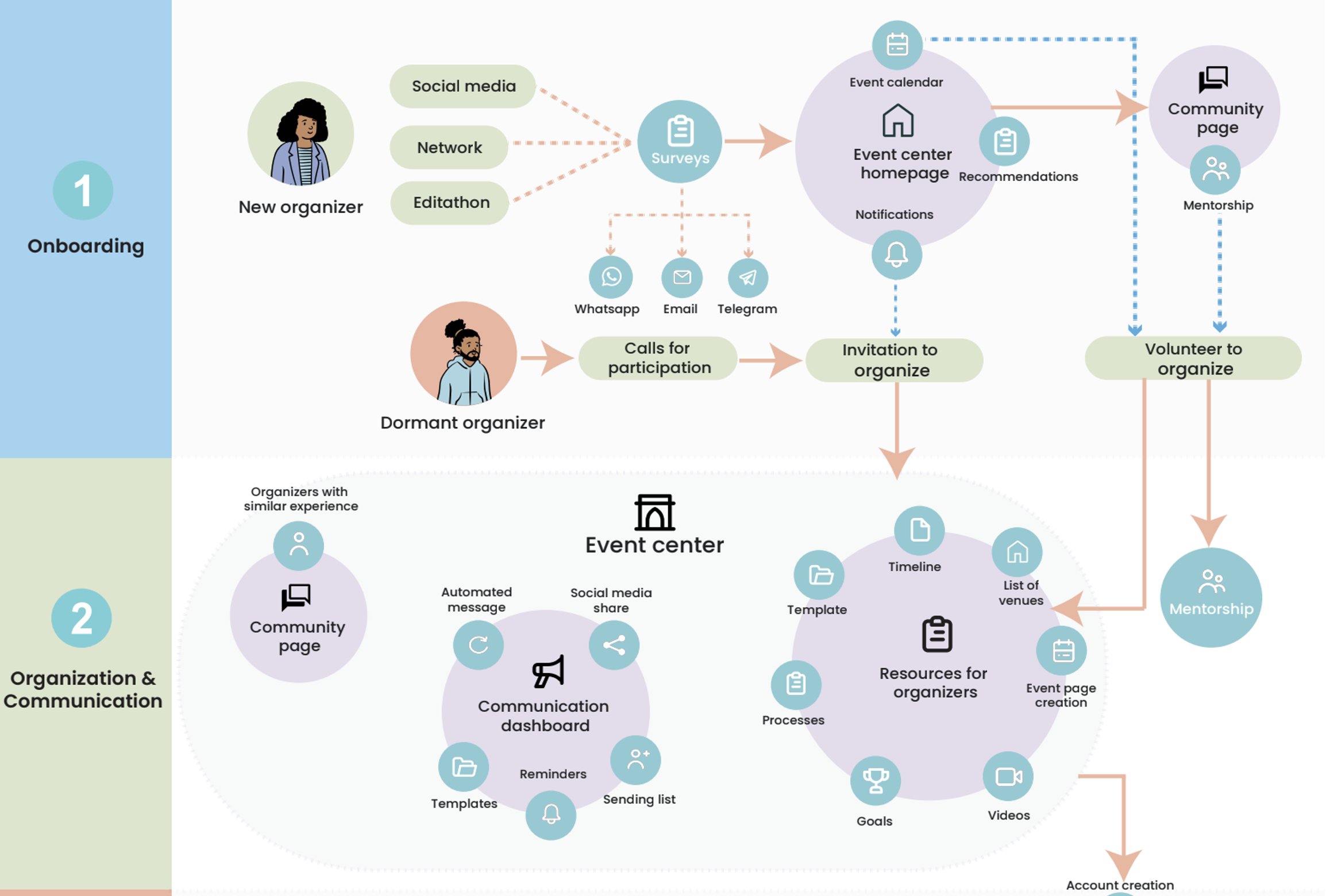
Figure 3: Excerpt from the second iteration of a new onboarding journey for volunteer organizers. The emphasis on mentorship and leveraging the organizer community is directly influenced by the research.
Read the full case study at epicpeople.org .Here are the main topics that will be explored and discussed:
- NAVIGATING FRICTION TO PRODUCE CHANGE
Contesting Western Assumptions: Learnings That Sparked Debate
Motivations for Volunteering
- The Burden of The Global South Researcher:
Being Comparative Cultural Experts and Ethical Champions
- Achieving Impact: Productive Friction
Decision-Making Power Remains in the Global North

